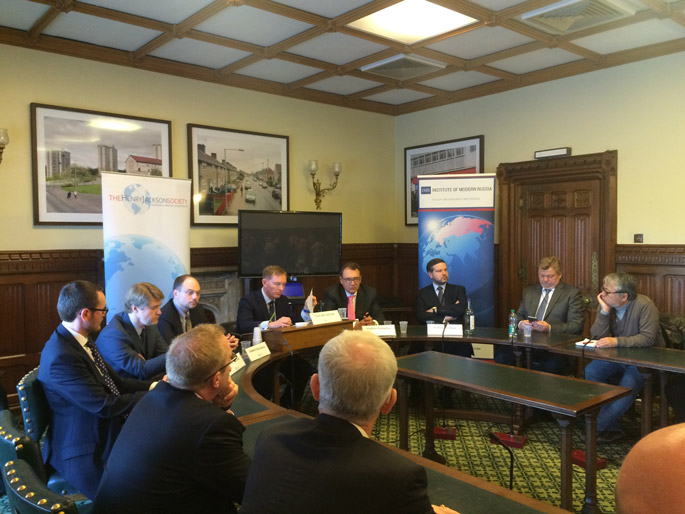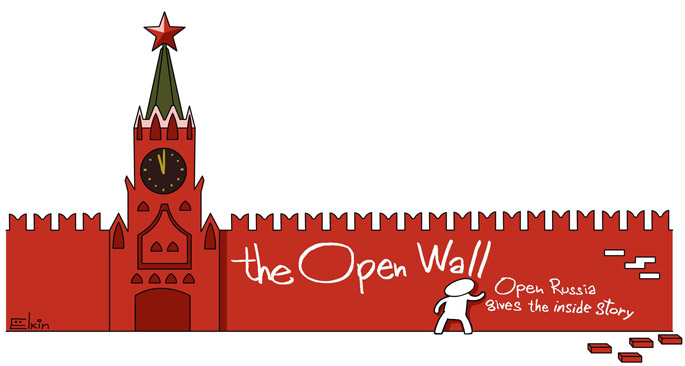Committee Room 18
Committee Room 18
Yesterday, in Committee Room 18 of the House of Commons in London, the Russian opposition found itself in the mother of parliaments, talking about the Russia that they don’t like, and the one that they would like to see.

They were there by invitation of Chris Bryant MP, the Henry Jackson Society and Open Russia. Somebody in the audience remarked at the very beginning how heartening it was to see the interest now being taken by the British government in Russian affairs. Of course, in truth, it was never not interested in Russia, only there is now some urgency.
The speakers were:
Vladimir Kara-Murza, Coordinator of Open Russia. He was a long-time colleague and adviser to the late Russian opposition leader Boris Nemtsov, and is the deputy leader of the People’s Freedom Party (PARNAS), established and led by Nemtsov. He was recently in the news, when he fell victim to a mysterious attack of poisoning, which almost killed him.
Vladimir Ashurkov, the Russian opposition politician currently living in London. In 2011, he and Alexey Navalny established the non-profit Anti-Corruption Foundation. In 2014, as a result of politically motivated criminal persecution by Russian authorities, Ashurkov moved to London, receiving political asylum in 2015. Recently, he acted as a “bus tour guide,” pointing out many of the lavish Belgravia, Kensington and Hampstead properties acquired by nefarious means by the beneficiaries of the Putin regime.
Dr Vladimir Pastukhov, Visiting Fellow, St Anthony’s College, Oxford. In the 1990s, he worked as a fellow at the Institute for Comparative Political Sciences, and the Institute of Latin America (both under the Russian Academy of Sciences). He served as counsel to the Constitutional Court of the Russian Federation, as well as to the State Duma and the Moscow City Mayor’s Office.
In other words, these were three people who knew whereof they spoke.
The press release laid out the situation quite baldly, and reminded us not only what the opposition is up against, but also what the West needs to be aware of:
The Duma parliamentary elections in September 2016 represent a critical point in Russia’s modern political development – exactly a quarter of a century after the collapse of the Soviet Union. The last Duma elections, in late 2011, were characterised by allegations of widespread fraud, misconduct, media manipulation, and the abuse of the courts to the benefit of Vladimir Putin’s ruling United Russia party. The September elections will take place in the context of a deteriorating civil society and political environment, and a contracting economy. The challenges currently facing opposition forces in Russia – registration problems, lack of fair access to media, harassment by law enforcement, and funding difficulties – are likely to be magnified in the run-up to and during the election period.
They [the speakers] will look ahead to the elections in September by discussing the challenges of ensuring a free and fair vote, and the issues that could arise before, during and after the vote.
Vladimir Pastukhov started off with a telling image, likening the Russian government to “a car on a slippery road; if you either accelerate or suddenly stop, in both cases a crash is inevitable.” As he sees it, “The Kremlin is making more mistakes than usual because it is nervous. Comparing the situation between 2014 and today, whereas before, finance and mass media management was being managed by the Kremlin, today the Kremlin is managing public subconsciousness. The biggest psychological problem for the Kremlin is that its main opponent is itself.”
Vladimir Kara-Murza had just come back from Irkutsk, Siberia, and said how surprised and pleased he had been to see such a lively democracy movement, “something to do perhaps with all the political prisoners sent there over the years.” Notwithstanding the appearance of grassroots democracy, he gave a sobering assessment, mentioning, for example, the alarming phenomenon that is the new 400,000-strong National Guard, which will be under the personal control of the president. “Many limits have been placed on this election, even more so than usual, what with new restrictive electoral laws regarding attendance at polling stations, and the lack of observers from the Council of Europe.”
But he made it clear that, no matter what the obstacles, there would be no going back. He spoke about the Open Elections project, whereby Open Russia is supporting independent candidates. “Even if these elections are not going to be fair, and we cannot win, it is nevertheless very important for this young generation of candidates to gain experience. The opposition might be publicly marginalised, but in actuality it has much more support than the headline figures would suggest.”
The third Vladimir (Ashurkov) spoke about the political field having been bulldozed during the past 16 years, how “Putin is becoming more unstable, and this will increase. These upcoming elections are unfair; candidates will either be jailed or forced to leave the country. The obstacles are many, what with court proceedings, lack of media access, black ops propaganda, limited financing, and no crowdfunding. If people want to give money they cannot do it online, but have to physically go to a bank or post office.”
But his message was exactly the same as Kara-Murza and Pastukhov, namely that, “we must still participate because our supporters expect it of us, and we know from international experience that the fact of taking part is important.”
Much has been written in the Western press, saying that the Russian opposition is demoralised, marginalised, demonised … What yesterday showed in Committee Room 18, is that this is not an accurate picture of what is happening in Russia today. If Russian history teaches us anything, it is that the future belongs to those who most want it.




